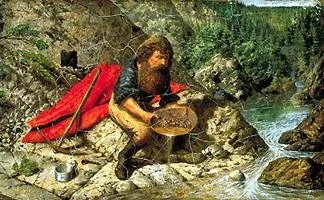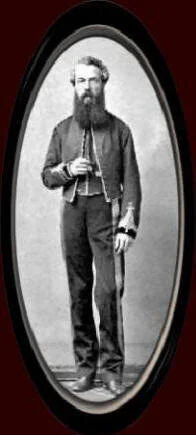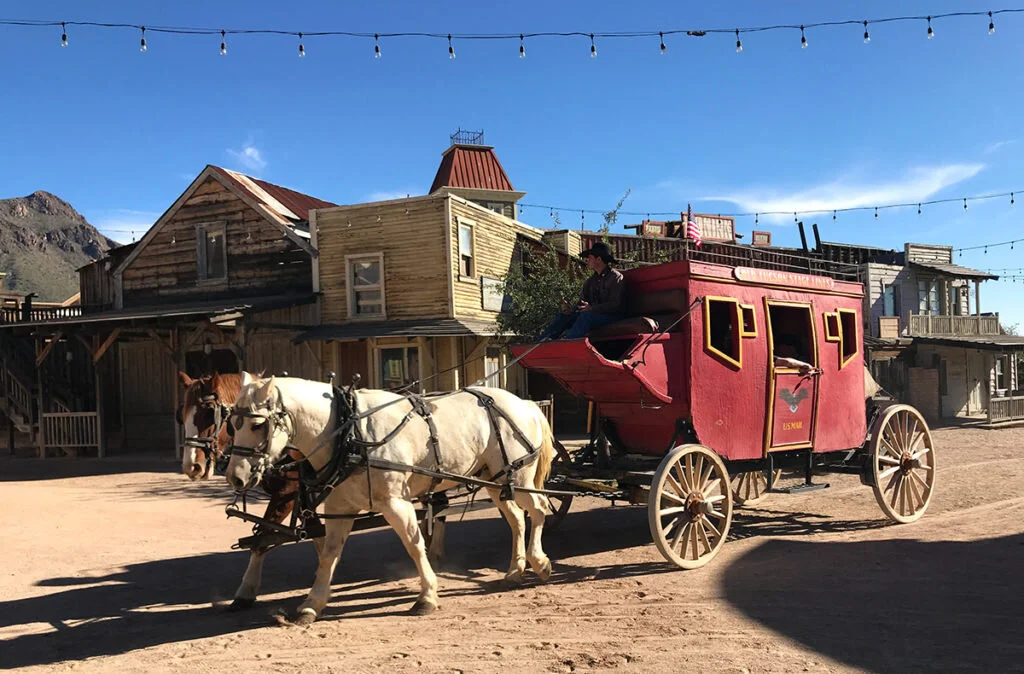Ned McGowan’s War - Conclusion
When we left off last week, California badman ‘Judge’ Ned McGowan had barely escaped a vigilante neck-tie for his alleged role in planning the murder of crusading San Francisco newspaper editor James King.
After laying low in Mexico he resurfaced in Sacramento then, with the help of influential friends, arranged for a farcical trial in wide-open Napa County. Once acquitted of complicity in King’s murder, it was time for a new start.
He chose to join the rush to ‘Fraser’s River’ in British territory north of the 49th parallel and, perhaps not unintentionally, beyond American legal jurisdiction.
The rocks in the right foreground are nothing like the large boulders prospectors had to contend with at Hill’s Bar. But that didn’t stop them from extracting an estimated $2 million dollars’ worth of the yellow treasure. Ned McGowan somehow came into possession of one of the richer claims. —thecanadianencyclopedia.ca
At Hill’s Bar, site of the first and what would prove to be the richest gold producer of any of the Fraser’s sandbars, he somehow acquired a rich claim and set up court, so to speak, in a saloon with his fellow countrymen and fellow exiles.
To this point he’d done nothing to draw the colonial government’s attention.
Then, what had begun as petty rivalry became a comedy of errors.
In Yale, Hickson found that Whannell, so as to insure that nothing happened to his witness, had placed him in protective custody. When Hickson presented his warrant for Dixon’s arrest, Whannell was so infuriated by Perrier’s disrespect for his authority, and Hickson’s insolence, that he had the constable arrested for contempt of (his) court and “insubordination,” and thrown into jail with the hapless Dixon.
Riverside Yale where Justice of the Peace Capt. P.B. Whannell kept barber Isaac Dixon in ‘protective custody’. —Wikipedia photo
This move not only marked the height of folly but was a first in British jurisprudence, and prompted Magistrate Perrier to make an even more drastic and foolish move.
After issuing a warrant for Whannell’s arrest on a charge of contempt of court, he swore in a 20-man posse of special constables and placed it under the command of the esteemed Ned McGowan!
McGowan, with all the enthusiasm and respect he usually showed for law and order, proceeded to Yale with his small army. There, they found Whannell’s court in session and without so much as knocking, marched into the courtroom and placed the astonished and justice of the peace in custody. As he was led away, protesting, McGowan had his men release Constable Hickson.
Perrier exacted his vengeance next day when Whannell was brought before him, found guilty, and fined $50. He was then released.
Perrier likely thought he’d had the last laugh.
He hadn’t counted on Whannell’s spite. Humiliated and beside himself with rage, the justice of the peace immediately wrote Governor Douglas of the incident. Forgoing all restraint, he denounced Perrier as being unfit for service in Her majesty’s Government, exaggerated McGowan’s role in the affair, and painted a picture of open rebellion.
“This town and district are in a state bordering on anarchy; my own and the lives of the citizens are in imminent peril. I beg your Excellency will afford us prompt aid...”
Not content with this plea for assistance, Whannell dispatched a copy of his letter to Capt. Grant of the Royal Engineers who was camped at Derby, explaining that his troops could “easily be billeted in this town”.
Likely it was the name Ned McGowan, rather than Whannell’s hysteria, that prompted Colonel Richard Moody, commander of the Royal Engineers, to take immediate action. Alarmed that this notorious American was planning a rebellion against British authority, he didn’t even wait to hear from Douglas but ordered Capt. Grant to march to Yale with 25 sappers.
Colonel Richard Moody didn’t wait for orders from Governor Douglas to order a detachment of Royal Engineers to put down any planned insurrection against British authority. —royalengineers.ca photo
Douglas responded with no less alacrity and resolve by ordering the gunboat HMS Plumper to proceed to Colonel Moody’s assistance with 100 marines, seamen and a field-piece.
In the meantime, Moody accompanied by Judge Begbie, was leading his men river aboard the steamer Enterprise. Hampered by ice in the river, their progress was slow and Moody became increasingly impatient as he’d since been informed that McGowan and his “lawless band of ruffians,” after occupying Yale by force, had shot Whannell and the town’s police force.
An unknown artist’s depiction of the riverboat S.S. Enterprise. —Wikipedia photo
If anyone else had been in command of Perrier’s posse, neither Douglas nor Moody would have been provoked into over-responding to the emergency. But the judge’s reputation was such that they were quite willing to believe the worst.
It wasn’t until the labouring Enterprise reached the mouth of the Harrison River that Moody encountered Billy Ballou, the legendary expressman. Fresh from Yale, he quickly set Moody straight. Nevertheless, Moody determined to push on to Yale. When the riverboat was turned back by low water at Umatilla Snag, they drifted down-river to the mouth of a creek where they sheltered for three days as one of the passengers, a Hudson’s Bay Co. storekeeper, hiked overland to Yale. By the time the Enterprise was able to get underway again, he’d returned with confirmation that all was quiet in town.
The Enterprise was then overtaken by Lieut. George Mayne and nine men who’d been sent ahead by Capt. Richards when the Plumper was forced to anchor at Fort Langley. With Mayne’s arrival, Moody determined to proceed to Yale by whale-boat as the main of his force marched overland.
Upon arriving at Hope, Moody decided that it would be best if, the next morning, just he, Begbie and Mayne completed the journey to Yale.
As expected, their arrival in the mining camp was without incident, the citizens greeting them civilly and without fanfare. They hadn’t altogether forgotten or forgiven the emergency responsible for the officials’ arrival, however, as, that very night, the miners held a meeting and passed several resolutions denouncing Magistrate Perrier’s actions in the affair.
The next morning, a Sunday, 30 or 40 miners attended a church service conducted in the court house by Colonel Moody. That done, all seemed peaceful and the crisis passed.
Moody, Begbie and Mayne were about to leave town the following day when McGowan assaulted Dr. Fifer, a former member of the San Francisco Vigilance Committee.
When McGowan assaulted Dr. Fifer, Colonel Moody ordered Lieutenant (later Admiral) Richard Mayne, RN, to bring up reinforcements. Mayne and McGowan would become friends!—Wikipedia photo
It was nothing more than a case of bodily assault on the part of McGowan but Moody, determined to make a firm stand in the face of what he interpreted to be an intentional slight, ordered Lieut. Mayne to hasten downstream and bring up the engineers under Capt. Grant. These quickly marched on Yale and, early the next morning, the town awoke to find them lined along the riverbank in full dress uniform.
Even the ubiquitous Ned McGowan couldn’t mistake Moody’s message and he hastened to the colonel with an apology for having assaulted Dr. Fife. Turning on his vaunted charm, he convinced the colonel that, in arresting Whannell, he’d acted as a legally appointed special constable under the explicit instructions of the Hill’s Bar magistrate.
Moody had to agree but this left the matter of the assault on Fifer. When McGowan magnanimously surrendered to the charge and pleaded guilty before Judge Begbie, he was fined $25 and released.
That done, all retired to Hill’s Bar where Ned conducted Moody, Mayne and Begbie on a tour of the diggings and even gave them a demonstration of gold panning before inviting them to a champagne supper. The old McGowan charm didn’t fail him and, by evening, he’d convinced his guests that all the stories they’d heard about him were absolutely false.
Lieut. Mayne, in his reminiscences, ?????? admitted to having been completely won over by the California desperado. Although well aware of McGowan’s notoriety, he found him and his cohorts to be “gentlemen” and, “all things considered, I have rarely lunched with better spoken, pleasanter company”.
And that was that. No war—but what a story!
It was, in the opinion of one respected historian, “merely a squabble between two petty officials”. In the view of Hill’s Bar Constable Henry Hickson, the entire blame for the affair could be laid on Capt Whannell, whose “overbearing manner...together with his want of legal knowledge and gentlemanly deportment, totally unfit him for the office he had been appointed to, being more fit for a constable than a magistrate”.
Not a shot had been fired, not a casualty marred the landscape (although it has been estimated that the affair cost the government $40,000). But Colonel Moody’s show of strength had convinced McGowan and others that there was to be no leeway with British authority and he once again decided to move on.
At least this is the usual reason for his abrupt departure from Fraser River.
However, according to Chartres Brew, acting gold commissioner an chief inspector of police, Ned’s decision to return to the United States resulted from an argument with his old friend and accomplice of San Francisco days, John Bagley. With the peaceful conclusion of the ‘war,’ Ned and George Perrier, who’d been dismissed from his post, decided to celebrate.
After promising Brew that they’d keep the peace, they received permission to fire 100 ‘guns’ from an anvil battery in honour of George Washington, and a further 10 as a compliment to Brew for his courtesy.
That night, a grand ball was held, Brew writing that, “The utmost harmony prevailed until the company went to supper, when some jealousy arose about precedence for seats. A Mr. Bagly [sic], of Hill’s Bar, abused McGowan and called him an old grey-headed scamp. McGowan immediately broke a plate on Bagly’s head and Bagly, in return, broke McGowan’s head with another plate.
“At once there was a general row and friends on both sides went off to get their pistols [Brew having stipulated that all guests check their weapons before the ball].
“But when they returned to the scene the affair had subsided into a demand for ‘satisfaction’ as soon as arrangements could be made.”
As neither man, after their introduction to Moody and Begbie, was willing to fight a fuel on British soil, it was agreed that they’d cross the line into Washington Territory. The time and place were agreed upon and McGowan, to facilitate matters, wound up his affairs by selling his rich claim on Hill’s Bar to a newcomer for “the paltry sum of $5t00”.
Before the duel could take place, however, McGowan and Bagley came to terms but McGowan kept his resole to quit the country.
In March 1859, the Puget Sound Herald, published at Steilacoom, W.T., reported that he was heading for Mexico: “By the politeness of Mr. Saunders of this place, we are in possession of a private letter dated 7th March, from a friend in Victoria, who left Steilacoom about a fortnight since. We extract from the letter the following:
“Ned McGowan, Sam Banty and others arrived here last night (6th inst.) from Hill’s Bar. Ned is bound for Sonora by the first vessel, where he goes to meet his son George McGowan, who is en route for Sonora as a bearer of dispatches. Ned reports favorably of the mines, but hearing a man gas is one thing, and seeing t product of his labor is another.
“I saw the latter, which amounts to $47,000, all in dust. Pretty good for an old man of 50.”
Other reports place Ned’s ‘poke’ at $4700, still a respectable sum at that time—and pretty good, indeed, for an “old man” of whom Chartres Brew had previously reported that he “kept himself shut in and seldom is seen out”. It was suspected that he spent most of his time drinking and gambling and we’re left to speculate how he acquired a rich claim on Hill’s Bar, and how he worked it.
Whatever the source of McGowan’s money, he was no longer a source of worry for Governor Douglas or anyone else above the 49 parallel. In fact, he seems to have troubled no one further, apparently having with his new wealth, turned over a new leaf.
Once part of the wildest of the wild West, Tucson, AZ is a tourist destination today. Nothing like it was when, after his adventure on Fraser River, Ned started life over again with a brief sojourn in Arizona. — https://inspiredimperfection.com/adventures/old-tucson/#jp-carousel-12979
When next British Columbians heard of him, five months later, he was serving in the duel capacity of lawyer and compositor in Tucson, Arizona where he was elected to Congress. Two years later it was reported he’d been killed by Apaches—not so as he returned to Pennsylvania where, it would seem, all his sins were forgiven.
Not only was the stabbing of the Gazette’s editor forgotten, but he was made Sergeant-at Arms in the House of Representatives!
A quarter of a century after his stormy stay in British Columbia, Ned gave his own version of that memorable period: “Life in California becoming unendurable, I went to Fraser’s River, in British Columbia, at that time the scene of a tremendous mining excitement. While there I met with a singular and amusing adventure.
“In ‘Hill’s Bar’ as our little mining town, largely settled by Californians, was called, there was an English magistrate who, though it sounds like ‘Paddyism’ to say, was a French Canadian, a good fellow named Perier [sic]. There was another English magistrate, this one at Fort Yale, a few miles away, who hated Americans, put on lots of dignity, insisted on the miners touching their hats to him, and was pretty generally disliked.
“He would have our boys arrested, and lock them up without due process of law, and make himself generally disagreeable. I represented to Perier that, taking a man from the jurisdiction of his court was a contempt of court and that one magistrate could not be in contempt of another.
“Perier swore me in as a special officer of her majesty [sic], and with a body of picked men I went over to Yale, took the key from the jailer, and liberated all the Americans confined, and brought the objectionable magistrate a prisoner before his confrere Perier.
“’What did you do with him?’ asked the reporter.
“Fined him $50 or contempt.”
“’And the money?’
“Was spent in drinks for the crowd. It was a Christmas Eve and the miners were taking a holiday.”
“’And so that ended it?’
“No, indeed. They sent for troops. Colonel Moody, afterwards Lieutenant-Governor Moody, was in command. I was arrested and tried for a breach of the peace. Judge Begbie, afterwards Sir Matthew Bailey [sic] Begbie, was on the bench. I made them put Perier on the stand, who testified that I was regularly commissioned “on her majesty’s [sic] service at the time of the alleged outrage.
“I got off, but Begbie denounced the proceedings as ‘a clever Yankee trick’”.
In the early 1880s Ned returned to San Francisco, the scene of his close escape from the Vigilance Committee and an assassin’s bullet, almost 30 years before. It was there he died on June 4, 1893, “a garrulous, penniless [and] pious old man”.
Have a question, comment or suggestion for TW? Use our Contact Page.






